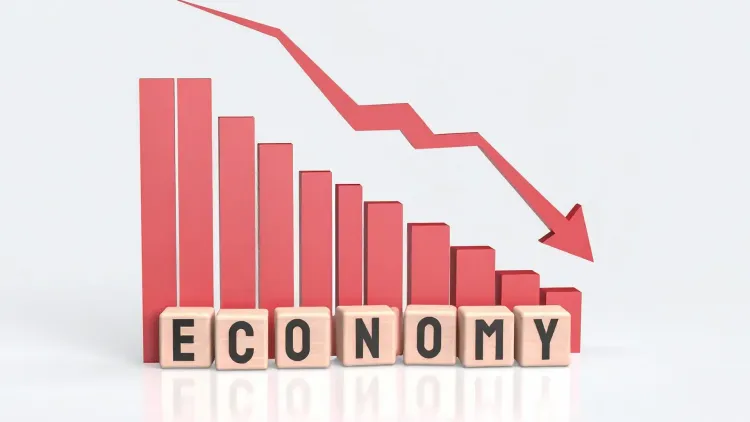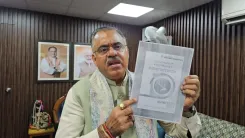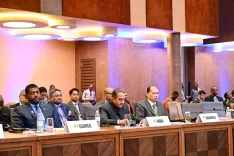Is Pakistan Facing an Economic Downturn with Trade Deficit Reaching $3.34 Billion in September?

Synopsis
Key Takeaways
- Trade deficit in Pakistan hit $3.34 billion in September.
- Exports decreased by nearly 12% while imports rose by 14%.
- SIFC has not succeeded in attracting substantial foreign investment.
- Defense spending increased significantly, impacting social sectors.
- The military's control over the economy has not led to sustainable growth.
New Delhi, Oct 16 (NationPress) Pakistan’s vulnerable economy is sinking deeper into crisis as the nation’s trade deficit has surged to nearly a record high of $3.34 billion in September. This rise is attributed to a nearly 12% drop in exports, which totalled $2.5 billion, while imports soared by 14% to $6 billion, according to the latest statistics.
During the first quarter of fiscal year 2025, the deficit expanded to over $9.3 billion, marking a 33% increase compared to the same timeframe last year. This trend indicates that Pakistan is importing significantly more than it can afford, while its export capabilities are diminishing, as highlighted by an article in Maldives Insight.
The recent data underscores the failure of economic revival promises made by the military leadership and their civilian partners. The Special Investment Facilitation Council (SIFC), initiated under Field Marshal Syed Asim Munir to attract foreign direct investment and stabilize the economy, has struggled to gain traction.
Designed as a single-point platform for foreign investors, the SIFC is directly managed by the military, touted as evidence that the army could address issues that politicians could not. The military promised that investors from the Gulf, China, and the West would flock to capitalize on the opportunities in Pakistan.
However, more than a year later, the SIFC has failed to draw significant investment. Gulf nations have opted for safer, more stable markets. Western corporations have shunned Pakistan’s unpredictable legal and regulatory landscape. Meanwhile, Chinese firms remain focused on resource extraction and infrastructure projects linked to the China-Pakistan Economic Corridor, which mainly benefits the military and Chinese enterprises, providing minimal advantages to the Pakistani economy and its citizens.
Furthermore, it is noted that global corporations like Microsoft have exited the market, while others like Uber and Procter & Gamble have reduced their operations. Domestic businesses are also hindered by challenges such as unreliable electricity, arbitrary taxation, and persistent government interference in economic matters.
Simultaneously, Pakistan has ramped up its defense spending by 20%, bringing it to approximately $9 billion. This increase comes at the expense of funding for health, education, and infrastructure.
“The priorities are clear: the generals ensure that the military is well-equipped and funded, while ordinary citizens endure power outages, dilapidated schools, and rising food prices. Pakistan’s tax base is limited, with only a small fraction of the populace contributing direct taxes. Instead of reforming the system, the government diverts its meager revenue to the military. This imbalance hinders economic growth as productive sectors lack the necessary support,” the article emphasizes.
The reality is stark: generals cannot effectively manage an economy. While the military has expanded its control over various sectors such as cement, fertilizer, banking, and agriculture, it has never succeeded in fostering sustainable growth. The military's approach prioritizes control and security over productivity and efficiency. This is why the nation continually seeks bailouts from the International Monetary Fund.









